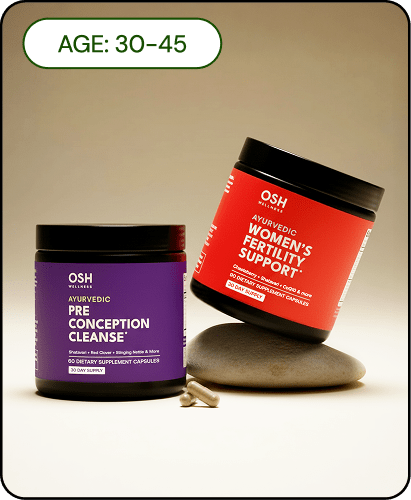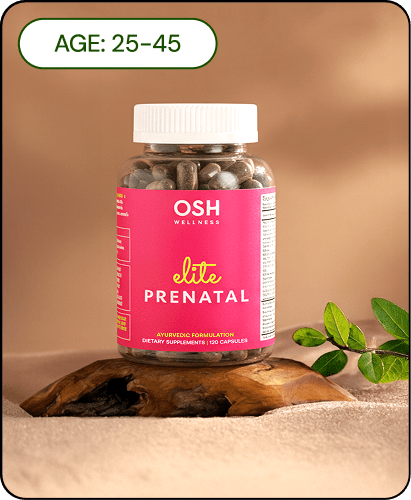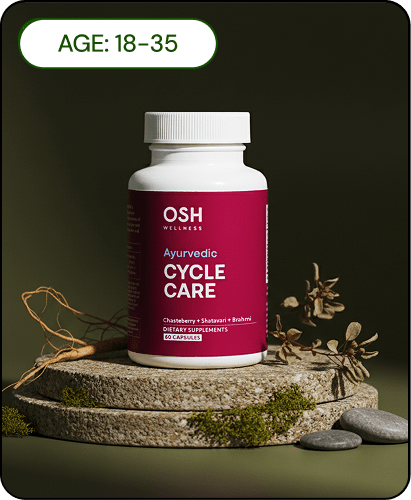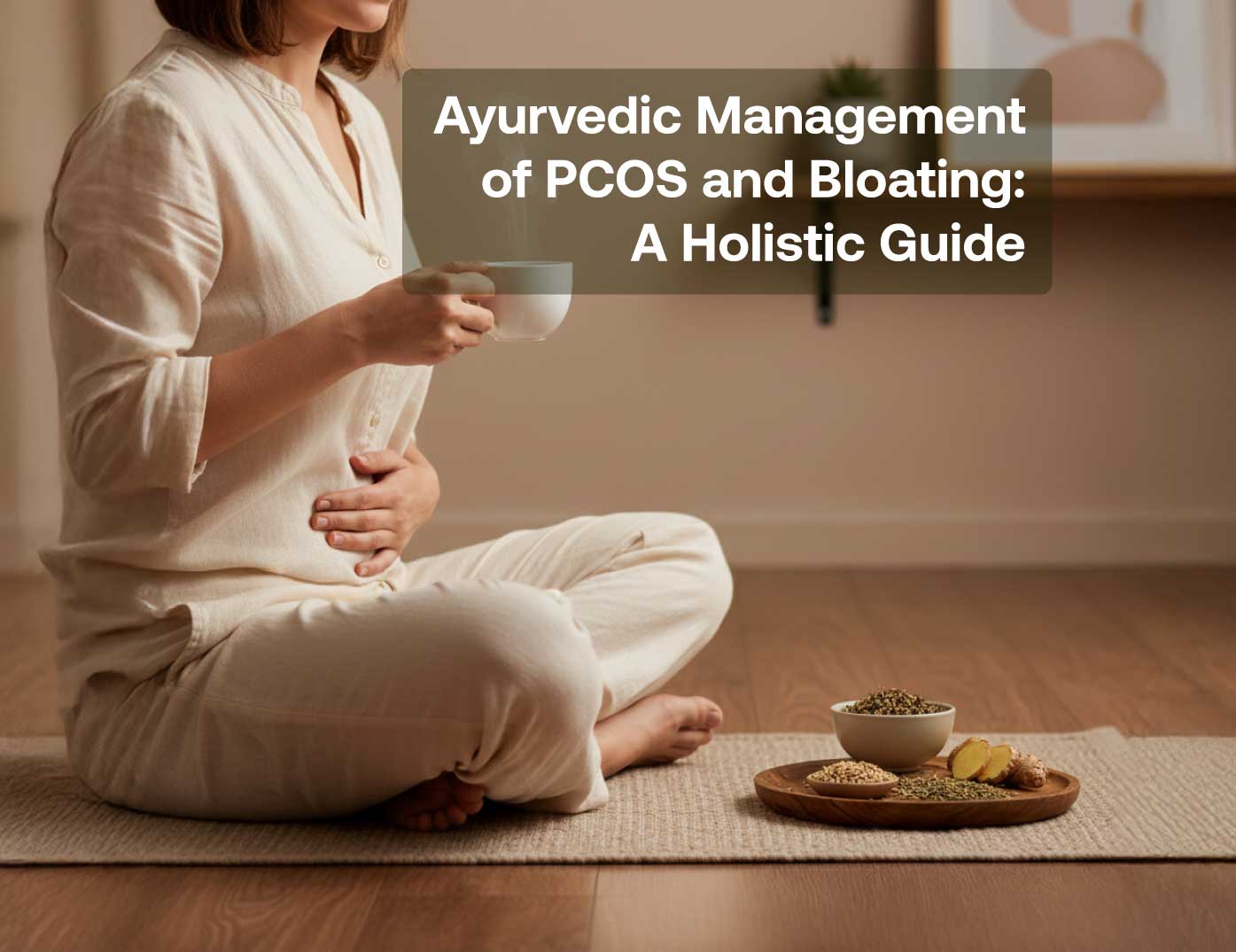Table of contents
In today's fast-paced world, hormonal imbalances are becoming increasingly common, particularly in women aged 30 to 45. The Ayurvedic diet for hormone balance offers a holistic and time-tested solution, drawing from centuries of wisdom to support the health of the pituitary gland and overall endocrine function. This article explores how Ayurveda can help restore balance through targeted nutrition, lifestyle practices, and specific herbs, guiding you on a path to vitality and well-being.
Understanding Hormonal Balance and the Pituitary Gland

The pituitary gland, often referred to as the “master gland,” orchestrates numerous hormonal processes essential for the body's equilibrium, especially in women during transitional life phases. Hormones like estrogen and progesterone, regulated by this gland, play critical roles in metabolism, mood, and reproductive health. Imbalances may result in fatigue, mood swings, and irregular menstrual cycles.
Ayurveda adopts a personalized, whole-food approach to hormonal balance, emphasizing dosha-based nutrition. A diet rich in fresh, unprocessed foods like vegetables, fruits, whole grains, and legumes, along with healthy fats such as ghee and olive oil, can support hormone production [1]. Specific foods like flaxseeds and soy contain plant-based estrogens that assist the pituitary’s hormonal functions [2].
Herbs such as Ashwagandha and Shatavari offer adaptogenic benefits, aiding in menstrual regulation and relief from menopausal symptoms. Alongside herbal support, mindful eating, and Dinacharya (daily routines) further stabilize hormonal rhythms. Equally important are good sleep hygiene and stress-reduction techniques, including yoga and meditation, which enhance the pituitary-adrenal axis while lowering cortisol levels [3].
Ayurveda’s Historical Perspective on Hormonal Health

Ayurveda is one of the world’s oldest medical systems and offers a deeply intuitive understanding of hormonal health. Its core principles, doshas, agni, and dhatus, provide a foundation for managing hormonal balance through customized care.
Doshas: Vata, Pitta, and Kapha define a person’s bio-energetic makeup. For example, in menopausal women, Vata imbalance often causes symptoms like anxiety and hot flashes, necessitating grounding dietary and lifestyle interventions [4].
Agni (digestive fire): Vital for converting food into energy and nutrients, a robust agni is linked to better hormone metabolism. Weakened agni can lead to hormonal irregularities and poor digestion [5].
Dhatus (bodily tissues): Particularly Asthi Dhatu (bone tissue) becomes critical post-menopause when estrogen drops. Ayurvedic interventions strengthen dhatus, supporting tissue regeneration and hormonal resilience [6].
Emerging studies affirm that traditional Ayurvedic herbs like Ashwagandha and Shatavari offer effective relief from hormonal symptoms, indicating a strong link between ancient wisdom and modern science [7].
Core Principles of the Ayurvedic Diet

At the heart of the Ayurvedic diet is the concept of bio-individualized nutrition. The diet is tailored to an individual’s dosha (Vata, Pitta, or Kapha) and aims to correct any current imbalances (Vikriti). For example:
Vata types benefit from warm, grounding meals like soups and stews.
Pitta types require cooling foods such as cucumber and coconut.
Kapha types thrive on lighter, less oily fare that stimulates metabolism [8].
Seasonal and fresh foods are emphasized, enhancing agni and syncing the body’s rhythms with nature [9]. Mindful eating, slow, intentional consumption in a peaceful environment, is also crucial for sustaining hormonal balance [1].
In addition to dosha-based meals, flaxseeds, Ashwagandha, and ghee are frequently used to enrich hormone regulation [10]. Daily rhythms (Dinacharya) and stress-reducing activities such as yoga further amplify bodily harmony [11]. For instance, starting the day with poha and nuts or enjoying mung dal with seasonal vegetables can align meals with Ayurvedic principles.
Essential Nutrients and Foods for Hormonal Restoration

A hormone-supportive Ayurvedic diet hinges on key nutrient-rich food categories for restoration. These include:
Healthy fats: Ghee, coconut oil, and avocados supply essential fatty acids necessary for estrogen and progesterone synthesis. Nuts and seeds like flax and sesame are rich in omega-3s and omega-6s [12].
Phytonutrient-rich foods: Dark leafy greens such as spinach and kale, along with antioxidant-rich fruits like papaya and pomegranate, enhance estrogen metabolism [1].
Plant-based proteins: Mung dal, chickpeas, and legumes balance reproductive hormones and support tissue regeneration [13].
Sample meals supporting hormone health might include a breakfast smoothie with greens and flaxseeds, a chickpea salad for lunch, and a lentil-sweet potato curry for dinner. Consuming iron-rich foods during menstruation is advised to replenish energy [14]. Avoiding processed foods and excessive caffeine is equally important for maintaining hormonal balance.
Harnessing the Power of Ayurvedic Herbs for Hormonal Support

Ayurvedic herbs are essential allies in the journey toward hormonal equilibrium. Among the most beneficial are:
Ashwagandha: A powerful adaptogen, it reduces cortisol levels, which disrupt reproductive hormones. Its calming effects support mood and reproductive stability [15].
Shatavari: Rich in phytoestrogens, it balances estrogen, supports fertility, and alleviates menopausal discomforts like hot flashes [16].
Brahmi: While not a hormone modulator, Brahmi helps manage stress, a key disruptor of hormonal health [17].
Triphala: Supports detoxification and digestion, foundational for hormonal function.
Integrated into a daily routine, via powders, teas, or capsules, these herbs elevate the benefits of an Ayurvedic diet for hormone balance, especially when combined with mindful practices and a phytonutrient-rich diet.
Lifestyle Practices to Enhance Hormonal Wellness

Diet alone cannot ensure hormonal balance without incorporating supportive lifestyle practices. Key pillars include:
Quality sleep: Aim for 7–9 hours nightly. Consistency and a relaxing bedtime ritual, like limiting screen time, improve melatonin and cortisol regulation [18].
Regular exercise: Mix aerobic movement with yoga or weight-bearing exercises at least 150 minutes per week. Physical activity reduces cortisol and improves insulin and reproductive hormone levels [19].
Stress management: Ongoing stress elevates cortisol, disrupting other hormones. Mindfulness, meditation, and yoga are proven methods to restore mental and physical equilibrium [20].
Start small: include a morning yoga stretch or a short evening walk. Prioritize whole grains, lean proteins, and omega-3s in meals. These practices help cement Ayurvedic diet choices into a sustainable wellness routine[21].
Relevant Products
Explore Osh Wellness Hormone & Mood Support, a well-formulated supplement designed to seamlessly integrate into an Ayurvedic lifestyle. Backed by adaptogenic herbs and traditional ingredients, it supports the endocrine system and emotional wellness.
Conclusions
Incorporating an Ayurvedic diet for hormone balance empowers women to take control of their hormonal and overall health. By aligning nutrition with doshic needs, integrating therapeutic herbs, and practicing mindful living, individuals can naturally restore equilibrium and stamina. These ancient yet relevant philosophies offer a sustainable path toward long-lasting hormone harmony.
FAQs
What is the connection between Ayurveda and hormonal health?
Ayurveda views hormonal health as an extension of one's doshic balance, digestive fire (agni), and stress levels, thus offering comprehensive support across diet, herbal treatment, and lifestyle.
How can I determine my dosha for dietary needs?
You can consult an Ayurvedic practitioner or complete a reputable dosha quiz to identify your mind-body type and tailor your diet accordingly.
Are there any side effects from Ayurvedic herbs used for hormonal balance?
Most Ayurvedic herbs are safe when used correctly, though some individuals may experience mild digestive upset. Always consult with a qualified healthcare provider before starting herbal supplements.
Can an Ayurvedic diet replace conventional treatments?
Ayurvedic practices complement but do not replace necessary medical interventions unless advised by a qualified professional. It's best to use both in tandem.
How long does it typically take to see results from dietary changes?
Visible benefits may appear within a few weeks, but sustained hormonal balance generally requires consistent dietary and lifestyle changes over 2–3 months.
Sources
- Charaka Ayurveda - Ayurveda for Women's Health: Balancing Hormones Naturally
- NCBI - Flaxseed and Hormone Modulation
- Deepam Meditours - Ayurveda and Women's Health: Addressing Hormonal Imbalances Naturally
- Herbal Reality - Hormonal Health: An Ayurvedic Perspective
- Path Wellbeing - Balancing Hormones through Ayurveda
- PubMed Central - Herbal Formulations in Menopausal Treatment
- JAIMS - Ayurvedic Approaches for Women's Health
- Deepam Meditours
- HUM Nutrition - Ayurveda Diet
- Vibrant Ayurveda
- Path Wellbeing - Ayurvedic Diet Principles
- Deep Ayurveda - 5 Foods That Help with Hormonal Balance Naturally
- Charaka Ayurveda
- The Ancient Ayurveda
- Menoveda - Ayurvedic Herbs for Menopause
- Eileen West MD
- Prime Health Care








